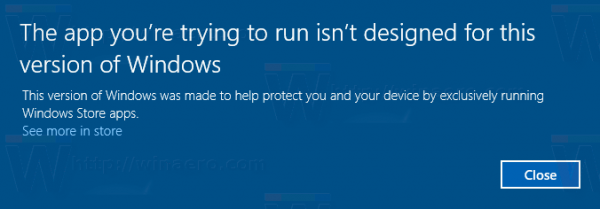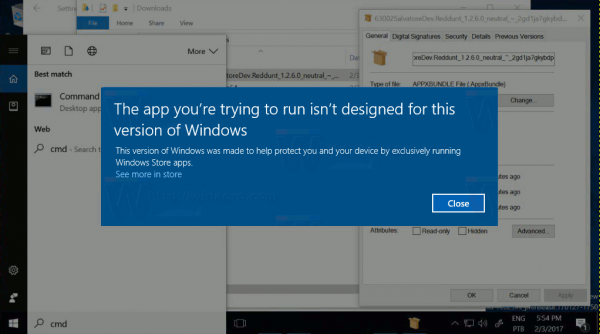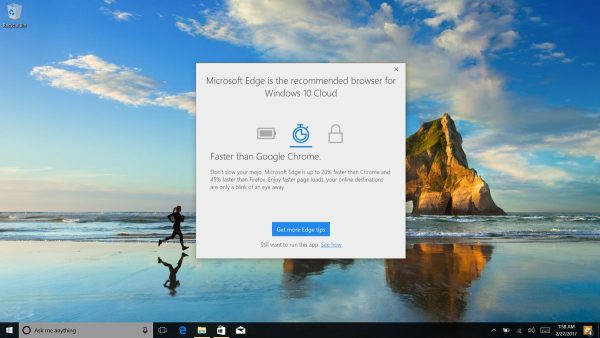The new Windows 10 Cloud edition is no secret for anyone these days. Designed as the replacement for the Windows RT product, an early version of Windows 10 Cloud already comes locked down so only UWP apps from the Store will run.
Advertisеment
 New information has come to our attention about Windows 10 Cloud, specifically about the ability to run Win32 apps in Windows 10 Cloud. They can run but only if they are converted into Store apps using Project Centennial. You will only be able to install them from the Windows Store.
New information has come to our attention about Windows 10 Cloud, specifically about the ability to run Win32 apps in Windows 10 Cloud. They can run but only if they are converted into Store apps using Project Centennial. You will only be able to install them from the Windows Store.Thanks to the new leak, it is now clear that the user can run Win32 (desktop) apps if they were converted to run on UWP using Project Centennial.
Project Centennial is a special wrapper around Win32 apps which turns them into Universal Platform-apps. They run in a sandbox and have some restrictions compared to native Win32 apps which you can install from anywhere.
It is still a surprise that some built-in Win32 apps like Regedit or Command Prompt cannot be launched in Windows 10 Cloud, while other apps like Paint or WordPad can be started as usual.

Windows Central reports that they have tested Slack and Tweeten. These apps work as expected for them.
Another interesting change in Windows 10 Cloud is a stronger push to use Microsoft Edge. If you try to install Google Chrome, a popup message will appear telling you that Edge is better, instead of clearly saying the Win32 version of Chrome can't run on this edition of Windows.

Windows 10 Cloud is expected to be a special edition of Windows 10 designed for low-power devices which are based on ARM SoCs. Just like Windows RT which was restricted to run only Store apps, Windows 10 Cloud will have similar limitations.
It is not clear yet what features we can expect in the final release of Windows 10 Cloud and whether it will be any different from the regular edition of Windows 10. Also any other limitations the software giant might add to the operating system are not disclosed yet. Windows 10 Cloud looks more like a competitor to Google's Chromebook devices, which have become quite popular these days. Microsoft's goal is to get Windows 10 more widely adopted on all types of devices.
Image and credits: Windows Central.
Support us
Winaero greatly relies on your support. You can help the site keep bringing you interesting and useful content and software by using these options:

I wonder if it will be possible to run Windows Cloud on Surface RT tablets??
I see another anti-trust suit incoming.